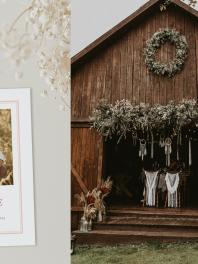
Weddings are joyous occasions that bring people together to celebrate the love and union of two individuals. However, with the diversity of cultures and traditions around the world, it's important to be culturally sensitive and aware when attending or planning a wedding. Cultural wedding etiquette is about respecting and honoring the traditions of the bride and groom, as well as their families. In this article, we will discuss some tips on how to be culturally respectful and aware at weddings.
Dress Code Etiquette
The dress code for a wedding can vary depending on the culture and tradition of the couple. It's essential to research and understand the dress code beforehand. In some cultures, a wedding may require guests to wear traditional attire, while in others, it may be more formal or casual. For example, in Indian weddings, women are expected to wear sarees or lehengas, while men may wear sherwanis or suits. In contrast, Western weddings typically require guests to dress in formal attire, such as suits or cocktail dresses. Knowing the appropriate dress code is crucial to showing respect for the couple and their culture.
Wedding Gift Giving
Gift-giving is an essential part of weddings, but it's crucial to be culturally sensitive when choosing a gift. In some cultures, it may be customary to give cash instead of a physical gift, while in others, specific types of gifts are expected. For example, in Chinese weddings, red envelopes with money are traditional gifts, while in Jewish weddings, it's customary to give money or a gift of equal value. Additionally, it's essential to avoid giving gifts that may be considered inappropriate or offensive in certain cultures, such as alcohol or pork products in Muslim weddings.
Ceremonies and Traditions

Weddings are full of ceremonies and traditions that are unique to each culture. It's important to respect and follow these traditions during the wedding ceremony and reception. For example, in Hindu weddings, the groom typically arrives on a white horse, and the bride is escorted to the mandap by her maternal uncle. In contrast, in Jewish weddings, the groom breaks a glass at the end of the ceremony, symbolizing the destruction of the Temple of Jerusalem. Understanding and respecting these traditions is essential to show cultural sensitivity and honor the couple's culture.
Communication
Communication is key when it comes to being culturally sensitive at weddings. If you're unsure about a specific tradition or custom, it's essential to ask the couple or their families for guidance. Additionally, it's crucial to be respectful when asking questions and avoid making assumptions about their culture or traditions. Being open-minded and willing to learn about other cultures is crucial to showing respect and appreciation for diversity.
Cultural Food and Drink
Food and drink are a significant part of any wedding celebration, but it's crucial to be culturally sensitive when it comes to the menu. It's essential to consider any dietary restrictions or preferences of the couple and their guests. In some cultures, certain foods may be considered sacred or taboo, and it's important to avoid serving them. For example, in Hindu weddings, beef and pork are typically not served, as cows are considered sacred and pork is not consumed by Muslims. Similarly, in Jewish weddings, kosher dietary laws are observed, which means that specific types of food, such as shellfish, are prohibited. It's also important to be sensitive to the level of spiciness in the food, as some guests may not be accustomed to highly spicy dishes.
Behavior and Respect
Lastly, it's crucial to show respect and behave appropriately at weddings, regardless of the cultural differences. It's important to avoid any behavior that may be considered disrespectful or offensive, such as talking loudly during the ceremony or showing up late. Additionally, it's important to be mindful of any religious or cultural customs and avoid any behavior that may be inappropriate or offensive, such as wearing shoes inside a temple or mosque. Lastly, it's essential to remember that weddings are about celebrating the love and union of two individuals and their families, and it's important to be respectful and gracious towards everyone in attendance.

Cultural wedding etiquette is not just about following a set of rules, but about showing respect and appreciation for the diversity of traditions and customs around the world. It's about honoring the couple's culture and traditions and creating a memorable and joyful wedding celebration for all. By being culturally sensitive and aware of the traditions in practice, you can show your support for the couple and their families and create a welcoming and inclusive environment for everyone in attendance. Whether you are attending or planning a wedding, remember that cultural awareness and sensitivity are essential to ensure a beautiful and meaningful celebration of love and union.

 by:
by: 


